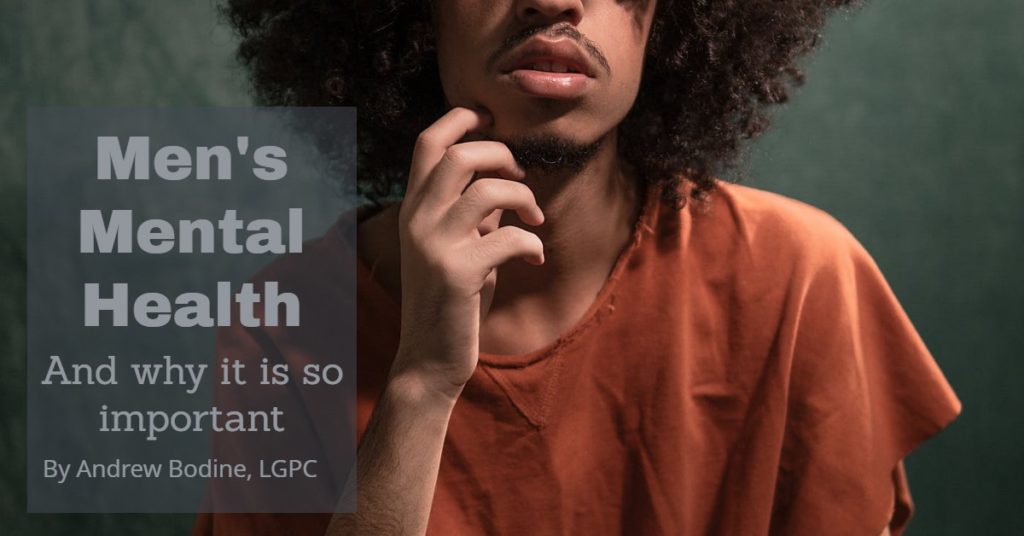Men’s mental health has been an ongoing discussion as the stigma around mental health treatment decreases. We hear how important mental health is, but struggle to find ways to express ourselves. From childhood, boys are often told that showing emotions is a sign of weakness. When a man talks about being sad or scared, he is told to “nut up”, “have some balls”, or even “be a man.” But what does it mean to “be a man?”
Is being a man what we see in Men’s Health magazine? Or maybe some of our biggest role models were characters on television or even video games. If Michael Phelps is coming out about his mental health, maybe we keep the discussion going!
The male heroes on TV have ripped muscles and the notion that nothing scares them. They are strong enough to protect everyone. But the idea of strength portrayed in today’s society creates a separation between men and their emotions. The things we are told growing up, accompanied by these male figures we see in the media, send a message that men aren’t supposed to show feelings. Men aren’t supposed to be scared, men aren’t supposed to be sad. The only emotions most male figures show on television are happiness and anger. Anger is the emotion that is often given to men, through role modeling and encouragement, as a way to express ourselves. As boys, we have a natural instinct to be strong and want to be the strongest. We roughhouse with our siblings, friends, and even get into fights to test our strength and ability to be a man.
But what happens when a man is only showing happiness and anger? Sometimes we end up alone or are told we are too aggressive. A man’s sadness and fear, along with other emotions, get pushed down and snuffed out by our conceptualization that being a man means to not have these experiences. When we inevitably experience those feelings, we feel weak or that we are doing something wrong. With those reactions, a sense of powerlessness, and maybe even worthlessness is born.
This inner turmoil creates a desire and needs to regain control. But the only tool we are given is to be angry. Anger is an emotion that seizes power and creates a false sense of control. Angry men punch things, angry men fight. So we do have to fight, but fighting a stigma of what mental health looks like. We have to fight the persona given to us by the media, and some of those childhood experiences. We have to fight to attend to the pain within and start shedding some of those notions that no longer serve us as men, sons, brothers, friends, and fathers.
If you are struggling with your mental health here are some tips:
- Start by going to a doctor to have your thyroid and hormones checked. Sometimes when our body is out of sync, it can cause irritability and aggression.
- Seek out ways to express your feelings safely, even if that means punching a pillow or a punching bag. Find a physical outlet- it can be very beneficial!
- Engage in activities with someone you feel safe around. This way you can begin to explore or try to express your feelings. If you do not have anyone in your life, seek out a mental health professional.
- Create more awareness when others give unrealistic or dismissive messages/interactions. This can be done through reflection such as journaling, blogging, or speaking to other men.

